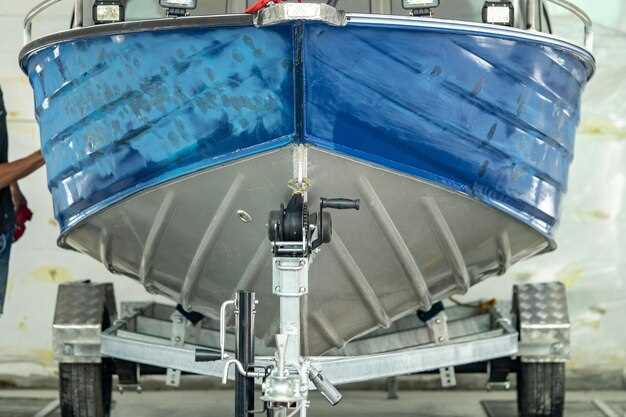
When it comes to choosing the right boat for your adventures on the water, two popular materials often come to mind: aluminum and fiberglass. Each material has its distinct advantages and disadvantages, making the decision a crucial one for boat enthusiasts and casual users alike. In this comprehensive comparison guide, we will delve into the characteristics of both aluminum and fiberglass boats to help you make an informed choice tailored to your needs.
Aluminum boats are renowned for their durability and resistance to corrosion, making them an excellent option for freshwater and saltwater environments. Their lightweight nature contributes to higher speeds and better fuel efficiency, while their ability to withstand rough conditions makes them a preferred choice for fishermen and recreational boaters. On the other hand, fiberglass boats offer a smooth and sleek appearance, providing a comfortable and stable ride. The aesthetic versatility of fiberglass allows for a wider range of designs and colors, appealing to those looking for both performance and style.
Throughout this guide, we will explore the key factors to consider when comparing these two boat materials, including maintenance requirements, cost implications, and overall performance on the water. Whether you prioritize agility, aesthetic appeal, longevity, or maintenance ease, understanding the strengths and weaknesses of aluminum and fiberglass boats will empower you to make the best choice for your boating needs.
Cost Analysis: Initial Investment and Long-Term Expenses

When considering the purchase of a boat, one of the main factors is the financial implication, both in terms of initial investment and ongoing expenses. Aluminum and fiberglass boats each have distinct cost profiles that can influence a buyer’s decision.
The initial investment for aluminum boats is generally lower than that of fiberglass boats. Aluminum boats are often cheaper to manufacture, resulting in more affordable price points for consumers. They also tend to be more straightforward to maintain, which can save money in the long run. However, the initial costs can vary widely depending on the size, design, and brand of the aluminum boat.
On the other hand, fiberglass boats usually come with a higher upfront cost. This is primarily due to the materials and construction process involved in creating a durable and aesthetically pleasing product. While the initial expenditure is higher, fiberglass boats are often favored for their smooth finishes and potential for customization, which some buyers consider worth the price.
In terms of long-term expenses, aluminum boats tend to have lower maintenance costs. They are resistant to corrosion and damage, which can lead to fewer repairs over the years. Additionally, aluminum boats are lightweight, resulting in better fuel efficiency, which can translate into significant savings on fuel over time.
Fiberglass boats, while requiring more initial investment, can also incur higher maintenance costs. They are more susceptible to gel coat damage and require regular upkeep to maintain their appearance and structural integrity. Repairing fiberglass can be more labor-intensive and expensive than aluminum repairs. However, when well-maintained, fiberglass boats can retain their value over time, which may offset some of the long-term costs associated with ownership.
In conclusion, both types of boats offer unique financial dynamics. Buyers should weigh the initial costs against their long-term expenses and consider their usage plans, maintenance capabilities, and potential resale values before making a decision. Understanding these financial aspects will ensure that boat owners can enjoy their vessels without unexpected financial burdens.
Durability and Maintenance: Which Material Outlasts the Other?
When comparing aluminum and fiberglass boats, durability and maintenance are two critical factors that can significantly influence a buyer’s decision. Both materials have their strengths and weaknesses, but understanding their long-term performance can help you choose wisely.
Aluminum boats are known for their exceptional strength and resistance to corrosion. Unlike fiberglass, which can suffer from gel coat fading and cracking due to UV exposure, aluminum offers a tougher exterior that withstands various environmental conditions. Moreover, when properly cared for, aluminum hulls can last for decades without significant wear.
Another significant advantage of aluminum is its ability to handle rough waters. These boats are less likely to suffer structural damage from impacts, making them ideal for areas with rocky shores or shallow waters. Their lightweight nature also contributes to better fuel efficiency and faster planning performance, adding to their overall appeal for boaters seeking durability.
On the other hand, fiberglass boats have their own durability merits. They are less prone to dents and can offer a smoother ride in calm seas. However, while fiberglass is robust, it can be more susceptible to damage from impacts compared to aluminum. Repairs can be costly and time-consuming, requiring specialized knowledge and materials.
In terms of maintenance, aluminum boats typically require less upkeep than their fiberglass counterparts. They do not require regular waxing or polishing to maintain their aesthetic appeal, as fiberglass does. However, it is essential to maintain the protective paint or anodized finish on aluminum to prevent corrosion. Regular inspections for spots or scratches can help extend their lifespan.
Fiberglass boats necessitate a more intensive maintenance routine. Beyond cleaning and waxing, owners must be vigilant about checking for any signs of osmosis or structural integrity issues. Regular maintenance can keep fiberglass boats looking great but can also be a drain on time and finances in the long run.
In conclusion, both aluminum and fiberglass boats have their distinct advantages regarding durability and maintenance. Aluminum boats tend to outlast fiberglass options in terms of strength and long-term performance with lower maintenance demands. However, fiberglass boats can offer certain aesthetic and ride benefits but require more frequent upkeep. Ultimately, the choice between the two will depend on your specific boating needs and how much time and effort you are willing to invest in maintenance.
Performance and Handling: How Do They Measure Up on the Water?

When it comes to performance and handling, both aluminum and fiberglass boats offer unique advantages that cater to different types of boaters. Understanding these distinctions can help you choose the right vessel for your needs.
Aluminum Boats
Aluminum boats are renowned for their lightweight construction, which contributes to their agility and speed on the water. Here are some key performance aspects:
- Speed: The lightweight nature of aluminum allows for faster planing, making these boats ideal for quick outings.
- Stability: Aluminum hulls often provide excellent stability, particularly in choppy waters, due to their solid construction.
- Maneuverability: The responsive handling of aluminum boats facilitates easy turns and rapid direction changes, enhancing the overall boating experience.
- Durability: The robustness of aluminum makes it resistant to impacts, ensuring reliable performance over time.
Fiberglass Boats
Fiberglass boats offer a different set of performance characteristics, often appealing to those seeking comfort and luxury on the water:
- Smooth Ride: The hull design of fiberglass boats typically allows for a smoother ride, especially in rough water conditions.
- Fuel Efficiency: Many fiberglass designs are optimized for fuel efficiency, reducing costs over extended journeys.
- Noise Reduction: Fiberglass boats generally provide a quieter experience compared to aluminum, due to their hull composition which dampens sound.
- Versatility: With a range of sizes and styles, fiberglass boats can cater to various activities, from fishing to cruising.
Conclusion
Ultimately, the choice between aluminum and fiberglass boats will depend on your intended use and personal preferences. Aluminum boats excel in speed, agility, and durability, while fiberglass options provide a smoother, quieter ride with potential fuel savings. Assess your priorities on the water to determine which material suits you best.



